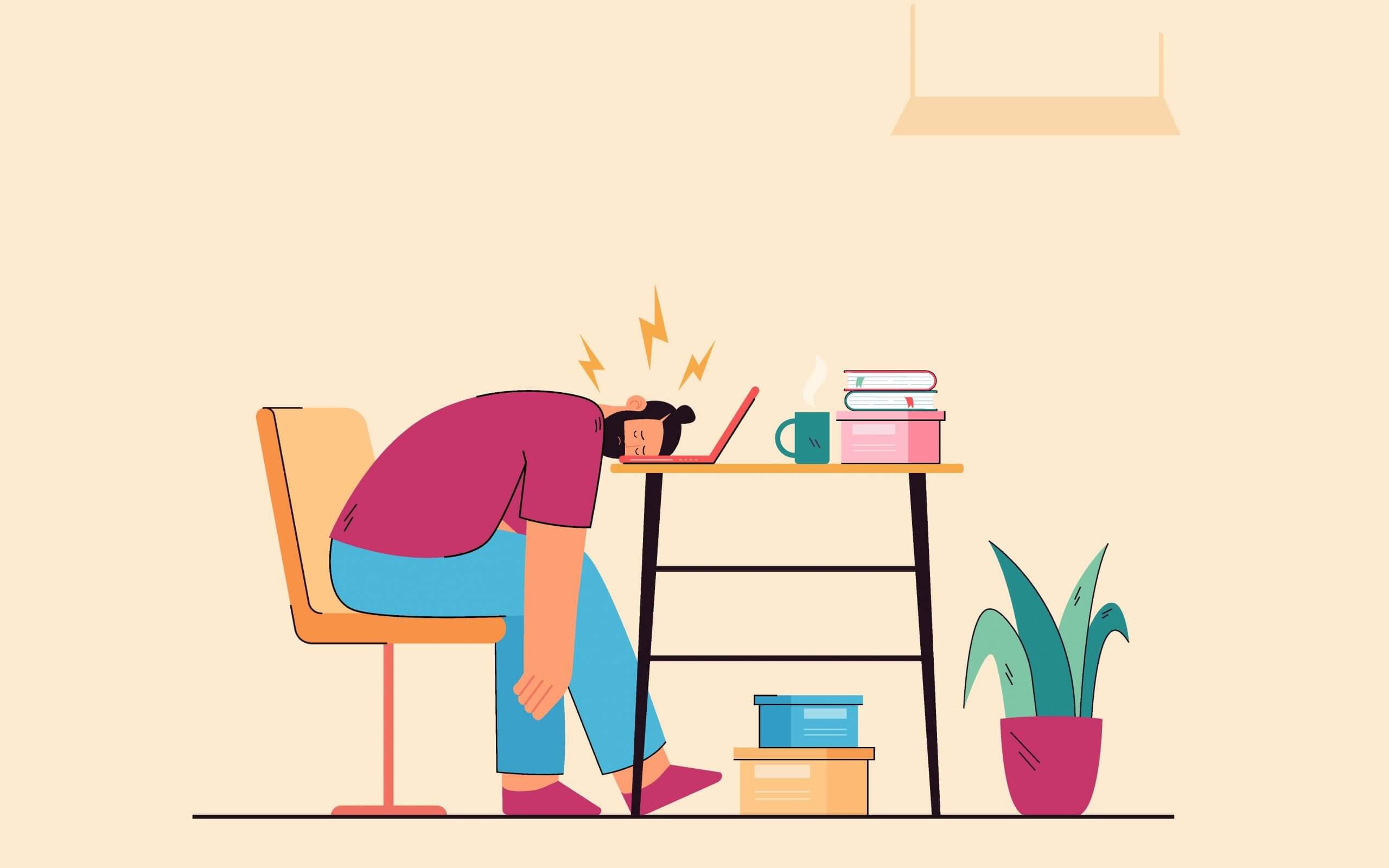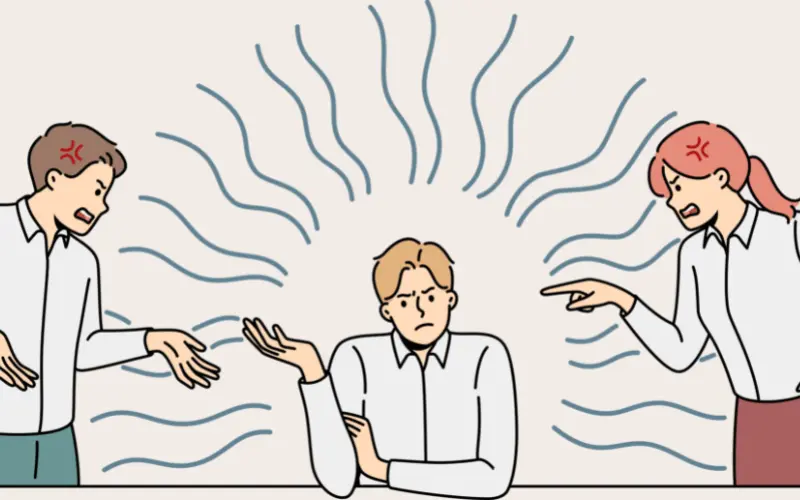Why do we procrastinate? Is it all laziness? Is procrastination related to mental health? These questions might pop up in your mind often! Sometimes, procrastination is not that straightforward, as it often seems at the surface level. It can be related to a lot of other factors, mental health challenges being one of the most crucial of them, according to experts.
No wonder sometimes we all behave like lazy beings in our pajamas, not taking a shower and only binge-watching on weekends. In many ways, we all procrastinate from time to time. It is very common and quite prevalent in today’s times when we can access everything and please our senses through advanced gadgets like our smartphones.
But, when procrastination becomes a daily part of your life and starts interrupting in everything you are supposed to be doing- but you are not, then it can be something considerable.
In today’s blog, we are going to dig deeper on why do we procrastinate, when procrastination is not just laziness, and how it can be something related to your mental health. Let’s start this!
According to studies, extreme procrastination can be a sign of mental health challenges like ADHD, eating disorders, depression, anxiety, perfectionism, panic disorders, and more. That’s why procrastination is not always equivalent to laziness, as we often try to put both of them in the same spectrum.
For example, if somebody is supposed to complete their project deadlines for the bucks, so they can pay their bills, but still, that person is not able to process his or her responsibility. Instead, watching television or playing games and not being able to function the work he is supposed to be doing, then it’s probably not a case of plain laziness, but is a matter of serious procrastination.
But, wait, before we conclude anything, it is very important to understand when procrastination is not a serious issue and when it is something you need to keep your eyes on and work towards to break that.
So, let’s have a look at what procrastination is, why do we procrastinate, and how it gets associated with mental health issues.
Without any further ado!
What Is Procrastination?
As the word defines itself- Procrastination is all about postponing things. That’s it! It’s a very simple and direct essence of this word. But, when you get thrown into it entirely, it can become like a tussle of mind.
As we mentioned above, we all procrastinate once in a while. But, when it’s constantly backfiring on you- you are missing your work deadlines, again and again, not washing your clothes. And there’s a whole pile of clothes built up over time, and a lot more, so procrastination can be a sign of something more than just being lazy.
Why Do We Procrastinate In The Very First Place?
There can be a lot of reasons behind procrastination individually. However, these are some of the most common causes found out by experts behind this constant need of delaying things knowingly.
Worrying or obsessing about the outcome-
We all go through our bad days or days of insecurities or lower self-esteem and self-confidence. Besides, we often worry about things we are trying for the first time or something vital. Therefore procrastination comes in.
For example, your presentation is coming up. And you have a fear of public presentation or speaking, so whenever you are about to start your preparation or practice, you might feel so worried about how your presentation will be done, will you be able to impress the stakeholders or not, and blah blah!
This constant worry and anxiety about the outcome of some tasks make you delay the process even more.
Have a mindset of doing things at the last minute-
Yes! We bet you must have heard it so many times. Isn’t it? Most of us work best under pressure or stress and like to wind up things at the last minute. According to psychologists, students often do this as far as their assignments, projects, and exams are concerned. Also, if we don’t like doing something, we tend to push it to the last hour.
Feeling low on energy or bored-
Sometimes, we don’t feel energetic and motivated to perform certain tasks. Therefore, we procrastinate very much. Also, following studies, if you are bored or feeling low on energy, you are more likely to pick up things that are easy to do like, watching Instagram or Facebook, instead of practicing your English sessions, which will definitely demand your efforts. Right?
Perceiving that it can be done later on-
Don’t say you do not do this! We are all somewhere and somewhat! We often delay things that are not that urgent. Urgency is something that motivates us to complete things instantly. If you have some more days left for your deadlines, then you are most probably watching YouTube instead of working.
When Is Procrastination Taking Control Of Your Lives?
Here comes the tricky part! We all procrastinate somewhat. But, when it is indicating something about your mental health, it can be challenging to tell.
Procrastination can be a critical issue when-
You are constantly delaying important things and facing serious consequences.
You are lying about things you had to do crucially.
You are constantly not able to show up at certain places or events.
You are lying to hide your difficulty to get work done.
There may be specific causes for your procrastination in one aspect of your life, such as a job for some reasons. But, if your procrastination is affecting multiple aspects of your life, then it can be something related to your mental health. And you should seek help to manage your procrastination.
Procrastination does not always imply that you have a mental health problem. However, it can be linked to several disorders. Mental health can be associated with why do we procrastinate.
Here’s how some mental health issues are connected to procrastination-
ADHD- Most people with ADHD have trouble concentrating and finishing tasks. Procrastination is a very prevalent symptom of ADHD, as per experts. ADHD patients have a larger tendency to procrastinate things regularly.
Also Read: How Do We Identify ADHD in kids?
Anxiety- Tasks can feel too stressful for someone who suffers from anxiety in their daily lives. People with anxiety symptoms are driven by their concerns and anxiety. And missing a deadline is the first consequence they consider before contemplating procrastination.
Depression- A person suffering from depression mostly lacks motivation or energy to complete a task, even if it is something very simple to do or needs very little energy.
Taking everything into consideration, procrastination is a common factor in various mental health scenarios. However, sometimes it can be laziness, and one cannot generalize the relation between procrastination and mental health.
But, if you realize that you are constantly delaying things despite knowing the importance of them, then you must seek professional help and go for a diagnosis.
There’s no risk in getting diagnosis and reaching out to some professional. It may only give you even more clarity and wisdom on your situation.
Why do we procrastinate– it can seem like a simple question, but, in reality, it is not!
P.S. One should never feel guilty about their challenging situation because of procrastination. Its not always your fault. You need your time! With proper help and guidance, you can overcome your situation. Start small and take one step at a time!











